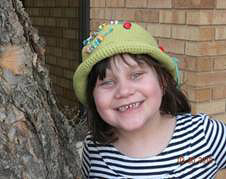Yes, it’s true. I went to the Qi Revolution seminar - http://www.qirevolution.com/ - with my sister in Schaumburg, IL last Saturday and Sunday.
The first response I get after telling my grounded, highly skeptical Midwestern friends is “Do you need an intervention?” Without fail I emphatically tell them, “no yet.”
Assuming that they don’t turn around and run out of the room after hearing that I went to the seminar, the next questions tend to be:
What is Qi Gong?
Why did you go?
Did you learn anything useful? And…
Did it hurt?
Here’s some answers:
What is it?
According to Wikipedia (the source of all true, factual knowledge) Qigong “… is a practice of aligning breath, movement, and awareness for exercise, healing, and meditation. With roots in Chinese medicine, martial arts, and philosophy, qigong is traditionally viewed as a practice to cultivate and balance qi (chi) or what has been translated as ‘intrinsic life energy.’ Typically a qigong practice involves rhythmic breathing coordinated with slow stylized repetition of fluid movement, a calm mindful state, and visualization of guiding qi through the body. Qigong is now practiced throughout China and worldwide, and is considered by some to be exercise, and by others to be a type of alternative medicine or meditative practice."
Why did I go?
I went because my sister attended the session so she could earn some “continuing education units” and keep her Doctor of Oriental Medicine license up-to-date.
Did I learn anything useful? (Part 1)
Yes. I learned that the Qi Gong movements look easy and, especially after the first very basic protocols, are challenging. A big part of the practice is moving slowly which, for me, is much harder than moving faster. Said differently, my form was lousy. Did I get a huge burst of energy? Hmmm, not really. Was I able to have enough energy to not eat lunch until 2:00 pm on the second day without becoming really grumpy? Yes, and that was a miracle.
I think a key point is that the head instructor, Jeff Primack, describes Qi Gong as a method of improving accelerating your metabolism and blood circulation. If it accomplishes that, it’s worth the effort.
Did I learn anything useful? (Part 2)
For me the most interesting piece was the discussion about using food to preempt/address diseases, including cancer. I’ll recap that in my next posting.
PS – On the “Did it hurt?” question I have to say that since I wrenched my shoulder before going, I expected it to really hurt and it didn’t.
PPS – Am I glad I went? Strangely, yes.





